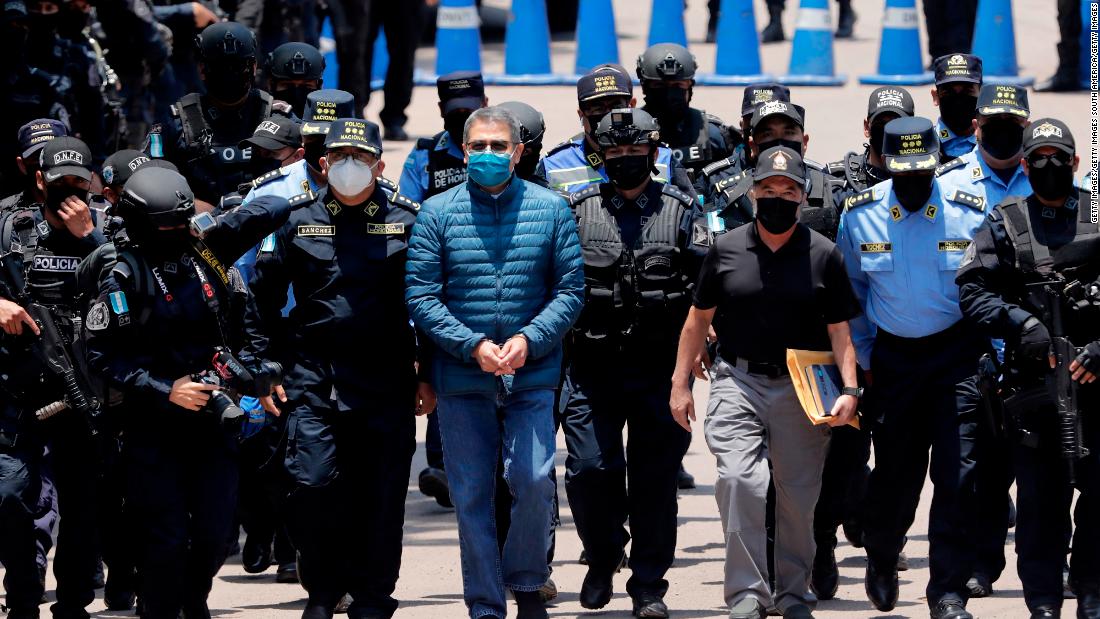
Hernandez was extradited from Honduras and arrived in the United States on Friday morning, according to prosecutors.
Hernández, speaking through a translator, appeared expressionless when answering the questions asked by Judge Stewart D. Aaron. The former president appeared on video wearing a light colored shirt and a blue jacket. He held the phone up to his ear while listening to the proceeding.
Through his attorney, Hernández waived the right to a formal reading of the charges against him.
The indictment in US District Court in the Southern District of New York charges Hernández with cocaine importation conspiracy, possession of machine guns and destructive devices, and conspiracy to possess machine guns and destructive devices.
Both parties have agreed that Hernández will remain detained, Judge Aaron said, but an attorney for Hernández can decide to file a bail application later on.
Hernández partnered with some of the most violent drug trafficking groups, receiving millions of dollars off a network that funneled cocaine through Honduras and into the US, according to the indictment. He used the money, the indictment says, to enrich himself, finance his political rise and subsequently remain in power.
In exchange, Hernández provided the trafficking organizations with law enforcement information that helped shield the organizations’ leaders from criminal investigations, protected leaders from extradition to the US and allowed them to commit violence with virtually no consequences, US authorities say.
His next court appearance is scheduled for May 10.
The Honduran Supreme Court last month authorized the extradition. Hernández left office in January after eight years as president.
Hernández’s brother, Juan Antonio Hernández Alvarado, was convicted in New York on drug trafficking charges in 2019. He had pleaded not guilty to all charges and chose not to testify during the trial, CNN reported then.
One of the most explosive allegations during that trial was that he funneled drug money to National Party campaigns “to impact Honduran presidential elections in 2009, 2013, and 2017,” according to the US Department of Justice.
Juan Orlando Hernández won office in 2013 and was reelected in 2017, after a disputed vote sparked days of deadly protests.
On Thursday, the Honduran Supreme Court also approved the extradition to the US of the former director of the National Police, Juan Carlos Bonilla Valladare, according to a press release from the Judiciary of Honduras.
Valladare is sought after by the US District Court in the Southern District of New York for conspiring to import, manufacture and distribute a controlled substance into the US and using or carrying firearms to import narcotics, among other charges.
Valladare has been under detention since March 10.
CNN’s Mark Morales contributed to this report.